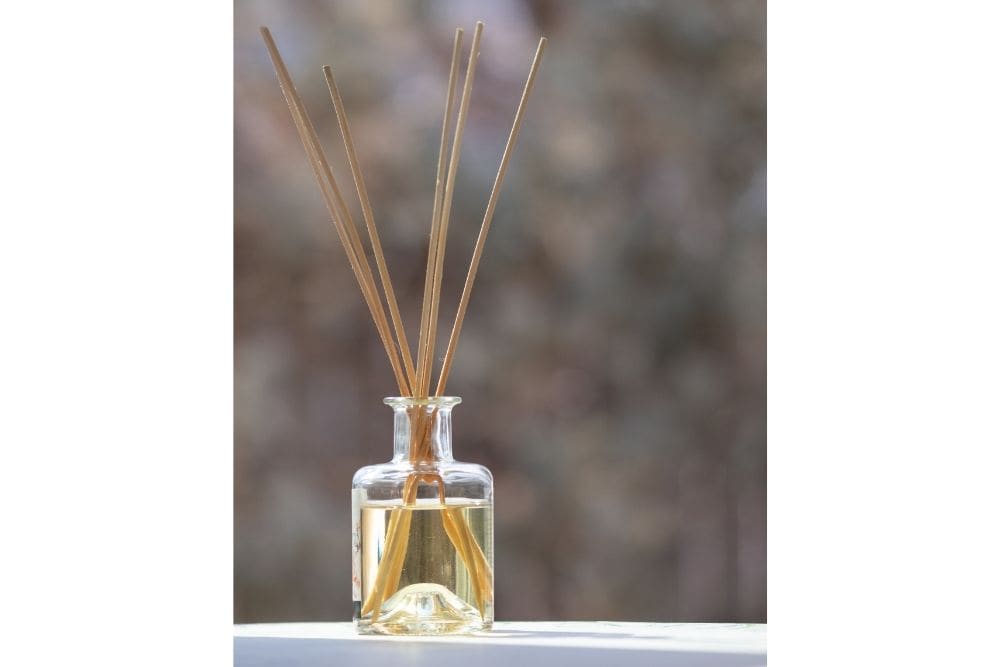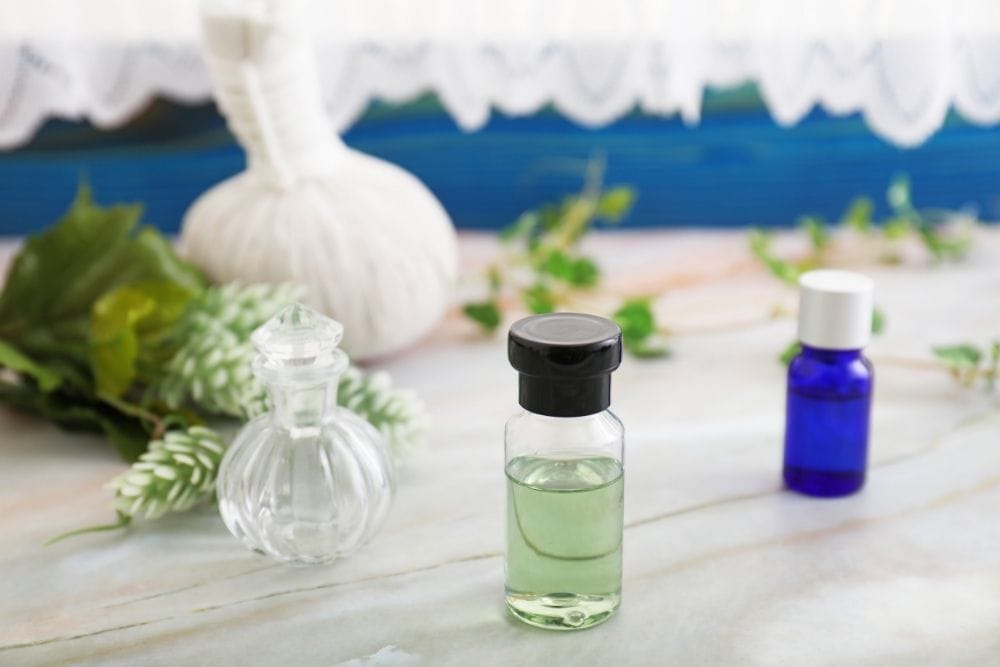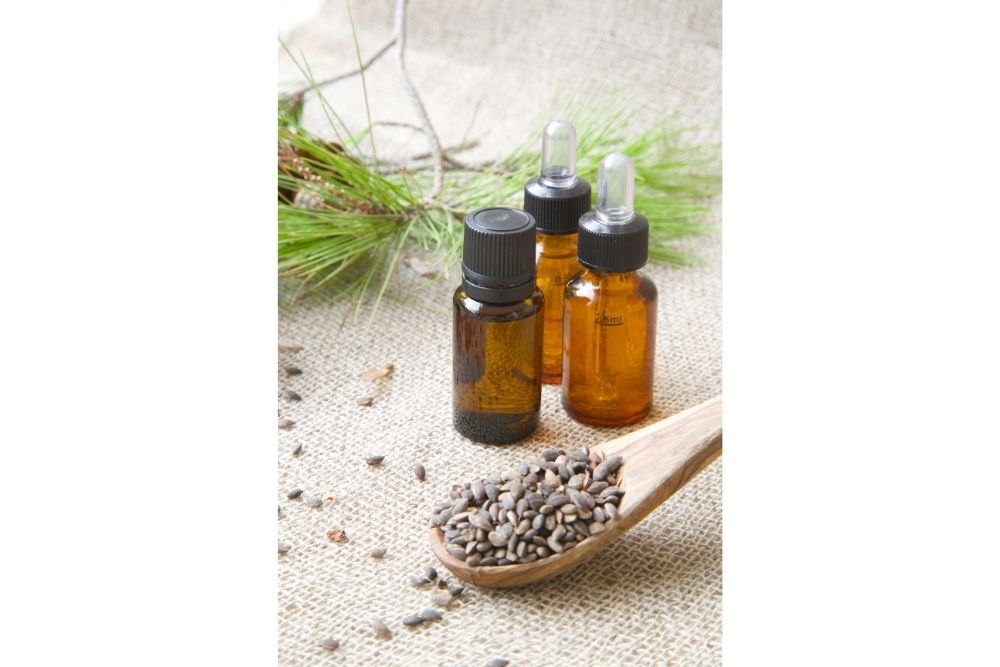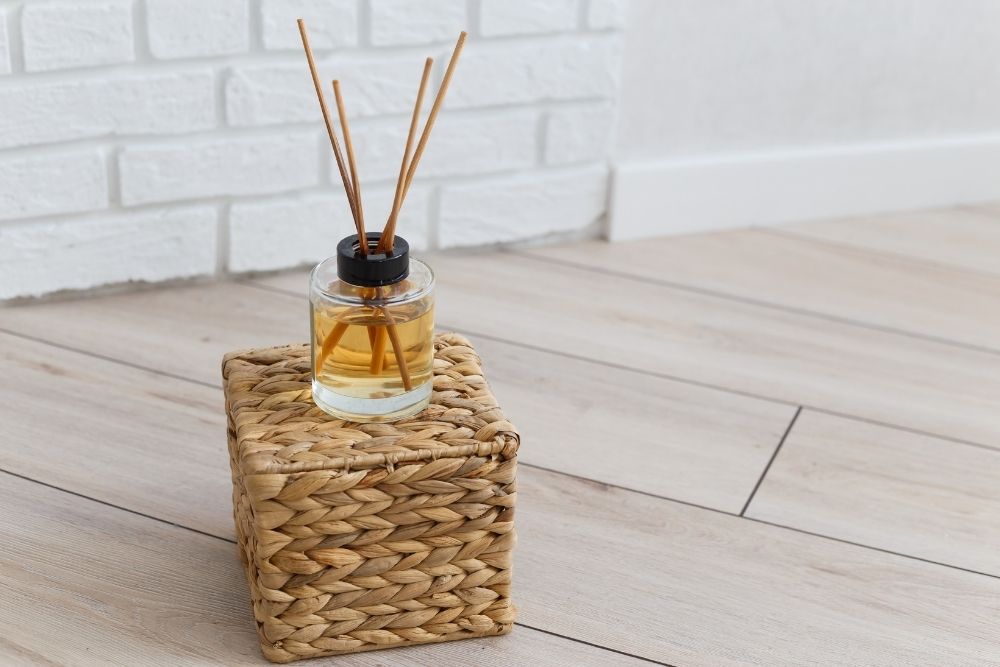Having a cat is a lot of responsibility. From feeding them, cleaning their litter box, and giving them all of the love and attention they deserve, your furry family members can be a handful sometimes!
Unfortunately, what essential oils you use around your cat is another thing to be mindful of since they are particularly sensitive to scents and potent essential oils.
The not-so-straight answer to if reed diffusers are feline-friendly is yes and no. While reed diffusers emit a lot less oil than a diffuser does, they do still spread scent around a space. Some oils are totally safe for cats, while others can be quite dangerous.
Keep reading to learn what to know before exposing your cat to a reed diffuser.
Contents
What is a reed diffuser?

A reed diffuser is a simple non-electronic way of enjoying essential oils. You can buy them but they are also incredibly easy to make at home.
Typically, a reed diffuser is filled with water, essential oils, and usually a small amount of alcohol to keep the reeds from rotting. They are affordable, aesthetically pleasing, and very low maintenance.
To keep a reed diffuser fresh, we recommend flipping the reeds every few days so that the essential oils stay well distributed throughout them.
There is nothing inherently dangerous about reed diffusers, so as long as you keep the essential oils you’re using cat-friendly, you’ll be good to go!
Why are essential oils dangerous for cats?
Unlike humans or even dogs, cats are missing certain enzymes that help break down the phenol compounds found in essential oils. This missing reaction is called glucuronidation and essentially helps detoxify and metabolize the body of anything that should be there.
What this means is those scent molecules that enter the cats’ system either through their skin, mouth, or nose can’t be processed. That makes many — but not all — essential oils toxic to cats.

It’s also important to keep in mind that cats aren’t just at risk of breathing in the scented air. They also like their entire bodies several times a day, so if any oils end up on their fur, they are bound to end up in their mouth sooner or later.
The chance of a cat having a bad reaction to some essential oil is quite high and can be very serious. Liver damage or failure, respiratory failure, a seizure, and unfortunately even death are all things that could happen to a cat poisoned by essential oils.
This isn’t meant to scare anyone. There are safe ways to use oils around cats, people do it all the time, it’s just important to educate yourself on what is allowed, what isn’t, and what the risks are.
What is and isn’t safe for cats?
Reed diffusers look relatively innocuous. After all, it’s just some sticks in a tiny vase, right?
Because the most dangerous part of a reed diffuser is the oils in it, the question shouldn’t be if reed diffusers are safe, but rather which essential oils in them are safe.
To start, reed diffusers should never be placed anywhere a cat can reach. Kitties love to climb and explore, so keep your diffuser high up or somewhere you know they don’t venture over to.
The goal is to make sure your cat doesn’t come into contact with the diffuser. If you have a particularly sensitive or sick cat, especially if you have one with respiratory problems, we do not recommend using a diffuser or any scented products around them at all.
What oils are safe for cats?

Here are some oils to put in your reed diffuser that are safe to use around your cat:
- Chamomile Essential Oil
- Lavender Essential Oil
- Jasmine Essential Oil
- Rose Essential Oil
- Frankincense Essential Oil
- Helichrysum Essential Oil
- Copaiba Essential Oil
Keep in mind that just because these oils are safe for your cat, doesn’t mean that you can use them topically or feed them to your cat. The oils listed should not cause any health problems as long as they are properly diluted and your cat is in good health.
If you’re looking for a relaxing cat-friendly essential oil blend, we recommend mixing lavender oil and frankincense oil together to calm down after a long day — or even in the middle of the day if you’re feeling up for it!
We also recommend double-checking with your vet before using any of these oils since they’re aware of your cat’s medical history and what’s best for them.
What oils aren’t safe for cats?

Now let’s get into what oils you should absolutely avoid using around your cat:
- Citrus Essential Oil
- Cinnamon Essential Oil
- Clove Essential Oil
- Thyme Essential Oil
- Ylang Ylang
- Wintergreen Essential Oil
- Tea Tree Essential Oil
- Pine Essential Oil
- Eucalyptus Essential Oil
- Oil of Sweet Birch
- Peppermint Essential Oil
- Pennyroyal Essential Oil
- Spruce Essential Oil
- Cassia Essential Oil
- Lemon Essential Oil
You should also always check the ingredients of an essential oil blend for using them around your cat. One blend might say it’s primarily jasmine and rose essential oil, but have a sneaky bit of cinnamon in it for warmth.
We’re also confident that this isn’t the extensive list of toxic essential oils, so once again, always double-check with your doctor before diffusing a new oil around your kitty.
Are reed diffusers safe for dogs?
It wouldn’t be fair to talk about cats without acknowledging dogs too. Dogs are also super sensitive to reed diffusers, or rather just essential oils.
Although dogs can metabolize scents, they may not enjoy them and they can irritate or even poison them. You should also consider your dog’s personality. Are they prone to trying to put new things in their mouth? If so, beware!
What oils are safe for dogs?

Here are a few oils for your reed diffuser that are safe to use around your dog:
- Lavender Essential Oil
- Cardamom Essential Oil
- Fennel Essential Oil
- Helichrysum Essential Oil
- Frankincense Essential Oil
- Spearmint Essential Oil
However, dogs’ skin is very sensitive, so please do not apply any of these directly onto them. While these essential oils are technically safe, they should still be used with caution around your fluffy best friend.
What oils aren’t safe for dogs?

Here are essential oils to keep away from your dog:
- Juniper Essential Oil
- Garlic Essential Oil
- Clove Essential Oil
- Pine Essential Oil
- Pennyroyal Essential Oil
- Tea Tree Essential Oil
- Cinnamon Essential Oil
- Citrus Essential Oil
- Wintergreen Essential Oil
- Thyme Essential Oil
- Rosemary Essential Oil
- Peppermint Essential Oil
- Oil of Sweet Birch Essential Oil
- Ylang Ylang Essential Oil
Just keep in mind that this is not a conclusive list!
In Conclusion
We love a good reed diffuser. It’s a cute convenient way to enjoy the benefits of essential oils without having to worry about cleaning, constant refilling, or any other fuss that comes with using a traditional electronic diffuser.
But we also love our pets, and they always come first. Do your research, talk to your vet, and know the facts. Cat parents don’t need to completely give up essential oils, they just need to learn how to use them safely.
And if you love your kitties as much as we love ours, we know you’ll make the safest decisions for their well-being.
Happy Oiling!

I currently work as a medical receptionist, but my ultimate goal is to work as an occupational therapy assistant. Helping others achieve a better quality of life is something I’m after. That’s one of the main reasons I started this blog. Learn more about me.
